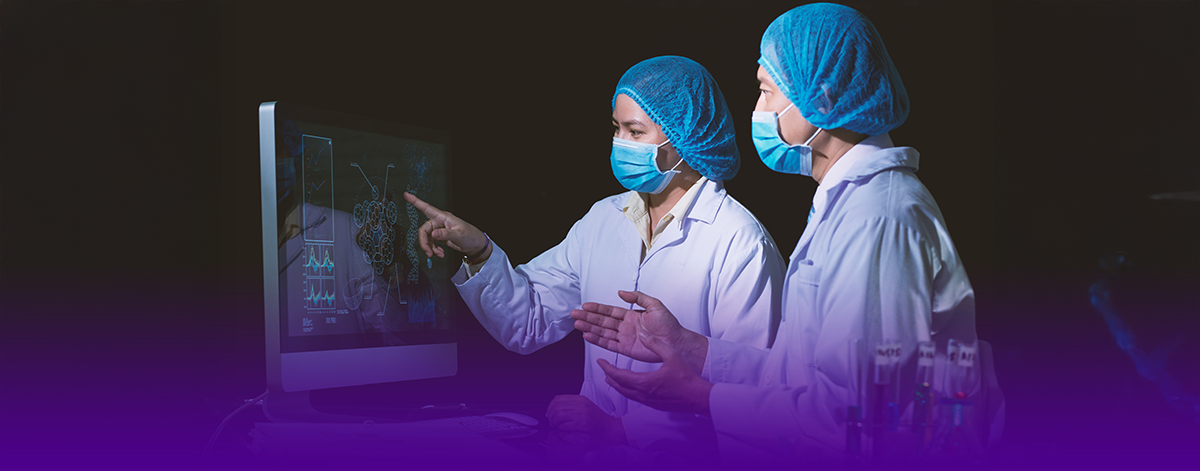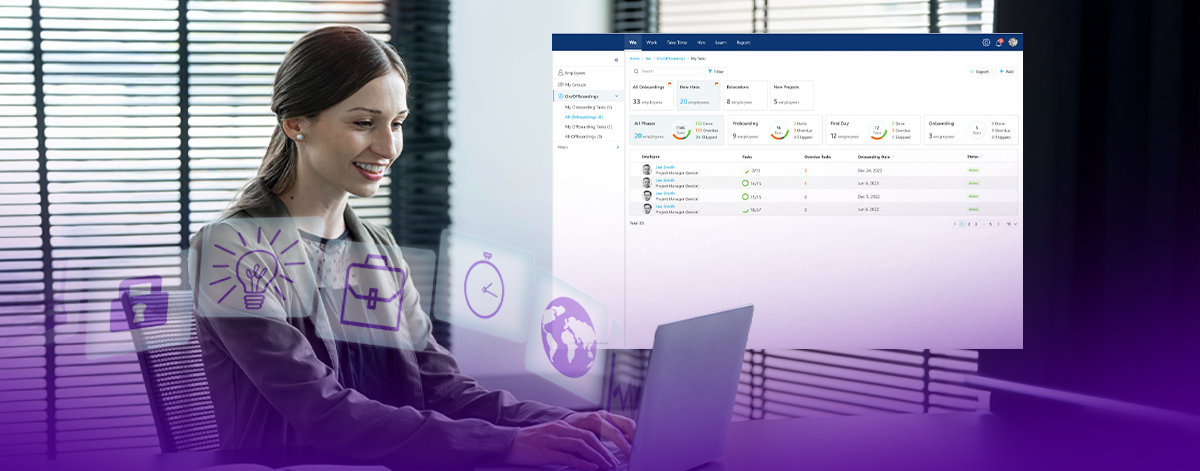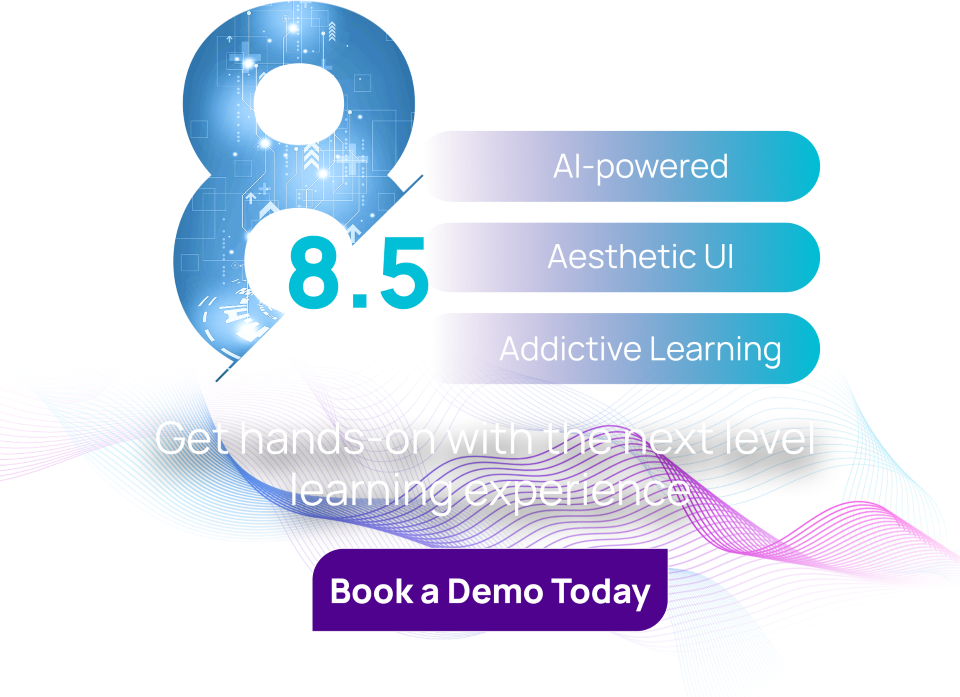
The Workforce Wake-Up Call: Why Organizations Must Act Now on Skills, Retention, and ROI
October 10, 2025
Enterprise Learning Platforms: What They Are, Their Benefits, and How to Implement Them
November 20, 2025As healthcare systems across the globe grapple with mounting pressure to improve efficiency, enhance patient outcomes, and optimize resources, digital transformation has become not just an option, but a necessity.
This transformation goes beyond merely adopting new technologies; it represents a strategic shift towards reimagining healthcare and biotech delivery.
It’s about leveraging innovative, cost-effective solutions while upskilling the workforce to stay agile, adaptive, and future-ready. In an environment where every decision impact patient care, operational efficiency, and organizational resilience, the ability to continuously learn, evolve, and apply knowledge effectively is no longer optional, it is essential.
Studies suggest that over 70% of biotech organizations face skills gaps, especially in emerging areas like bioinformatics, biomanufacturing, regulatory compliance, and laboratory automation.
This is where AI-powered Learning Management Systems (LMS) come in. These platforms are specifically designed to bridge skill gaps, accelerate onboarding, and support continuous professional development, not just for employees, but also for external partners and customers who play critical roles in delivering outcomes.
What Makes the Biotech Workforce Unique?
The biotech workforce is diverse and highly specialized. Roles range from lab technicians, research scientists, regulatory affairs specialists, and clinical operations managers to production and quality control staff.
Key workforce challenges in biotech include:
- Complexity of Knowledge: Employees must understand intricate biological processes, cutting-edge technology, and detailed compliance regulations.
- Rapid Innovation: New drugs, therapies, and lab processes are introduced frequently, requiring continuous learning.
- Regulatory Pressure: Adhering to FDA, EMA, ICH, and GMP standards is non-negotiable.
- Global Scale: Biotech organizations often operate across multiple sites and time zones, necessitating consistent training and communication.
- Cross-Functional Coordination: Teams often need to collaborate with partners, distributors, and customers, making external learning programs essential.
To address these challenges, organizations are turning to AI-powered LMS platforms such as Tenneo LMS, that provide personalized, data-driven, and scalable learning solutions.
How AI-Powered LMS Supports Biotech Workforce Development
1. Personalized Learning for Specialized Roles
Each role in biotech has distinct learning needs. For example:
- Lab Scientists: Need advanced modules on CRISPR, cell culture, or bioinformatics.
- Quality Control & Regulatory Staff: Require training on GMP compliance, quality audits, and documentation standards.
- Manufacturing Teams: Must master bioprocess workflows and safety protocols.
AI-powered LMS such as Tenneo create personalized learning paths based on employees’ skill profiles, performance data, and learning history. Adaptive learning ensures that each employee receives content relevant to their role and knowledge gaps, maximizing efficiency and retention.
2. Continuous Learning and Real-Time Updates
Innovation in biotech moves fast, making continuous learning crucial. Tenneo ensures that learning content is always current, automatically updating modules with the latest research, regulatory changes, and product developments.
Employees can access training anytime, anywhere, on mobile or desktop devices. This just-in-time learning helps staff respond quickly to changes, reduces downtime, and keeps teams confident and competent in a fast-paced environment.
3. Compliance and Quality Assurance
Regulatory compliance is non-negotiable in biotech. Failure to comply with can result in serious legal consequences, product recalls, or delays in clinical trials.
Robust LMS like Tenneo offers:
- Automated Compliance Tracking: Monitors training completion, certifications, and mandatory refreshers.
- Audit-Ready Reporting: Generates detailed compliance reports for internal and external audits.
- Adaptive Reminders: Ensures employees meet deadlines for compliance certifications.
By integrating learning with regulatory requirements, organizations mitigate risk and maintain operational integrity.
4. Immersive Learning Experiences
Practical, hands-on training is essential in biotech. Tenneo provides:
- Virtual Labs and Simulations: Employees can safely practice lab procedures or equipment handling.
- Scenario-Based Modules: Prepare staff for complex real-world situations, such as troubleshooting or clinical trial protocols.
- Gamification Elements: Badges, leaderboards, and challenges increase engagement and motivation.
Immersive content helps employees retain knowledge longer and apply it more effectively, reducing errors in critical operations.
5. Partner and Customer Enablement
The biotech ecosystem includes distributors, resellers, and customers who require ongoing education:
Partners: Need updated product knowledge, certifications, and onboarding. Tenneo provides custom learning portals, enabling partners to access training anytime, ensuring consistent knowledge across geographies.
Customers: Educating end-users on products or devices improves adoption, reduces support queries, and fosters loyalty. AI-powered LMS enables self-paced learning, tutorials, and community forums to empower customers.
This extended enterprise approach ensures that everyone contributing to the organization’s success is knowledgeable, confident, and engaged.
6. Analytics and Data-Driven Insights
Leaders need visibility into learning effectiveness. Advanced LMS offers:
- Advanced Dashboards: Monitor course completion, engagement, certifications, and skill acquisition.
- Predictive Analytics: Identify employees, partners, or customers who may need additional support.
- Performance Integration: Learning metrics can be linked to sales, operational KPIs, or compliance outcomes.
This data-driven approach enables smarter workforce planning and targeted interventions to bridge skill gaps.
7. Scalability and Global Reach
Biotech organizations often operate globally, requiring consistent and accessible training across locations. Tenneo LMS provides:
- Cloud-Based Learning: Accessible from anywhere, anytime.
- Multi-Language Support: Ensures all learners receive consistent messaging.
- Custom Portals: Each division or partner network can have tailored, branded learning experiences.
Scalable solutions ensure that knowledge and compliance standards are uniform across all operations, regardless of location.
The Bigger Impact on Biotech Organizations
By adopting an AI-powered LMS, biotech companies can:
- Close Skill Gaps Faster: Targeted learning reduces errors and accelerates competency.
- Ensure Compliance Across Teams: Automated tracking reduces regulatory risk.
- Boost Productivity: Employees learn what they need, when they need it.
- Strengthen Partner and Customer Relationships: Knowledgeable partners and empowered customers drive business growth.
- Measure and Optimize ROI: Analytics allow continuous improvement of learning programs.
In a highly regulated, fast-paced industry like biotech, this integration of learning, technology, and analytics gives organizations a competitive edge.
Final Thoughts
The success of biotech organizations no longer depends solely on internal talent—it extends to partners, customers, and the broader ecosystem. An AI-powered LMS like Tenneo bridges skill gaps, ensures compliance, and fosters continuous learning for all stakeholders.
By providing personalized, scalable, and immersive learning experiences, biotech companies can equip their workforce to meet evolving industry demands, innovate confidently, and deliver consistent quality.
Where does your organization stand in its learning journey? Are your employees, partners, and customers fully equipped to thrive in this fast-evolving biotech landscape?
What challenges do you face in developing a skilled workforce, and how could AI-powered learning help you overcome them? Leave a comment here.
Other Articles





